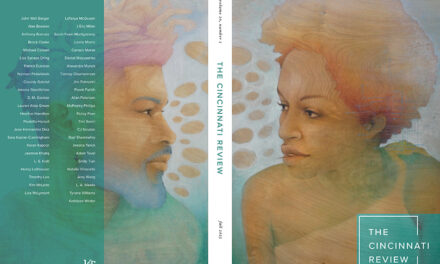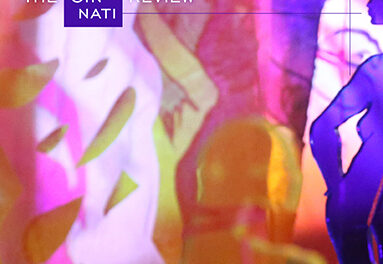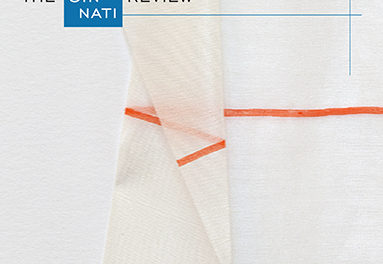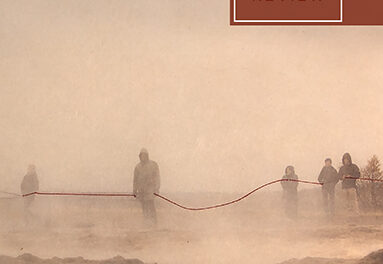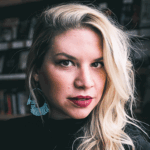Sundays when I was a small boy, my paternal grandmother watched the faith healer Oral Roberts on our Philco television. She was almost eighty years old at the time and nearly blind with cataracts. I watched with her because I was fascinated with television. An only child, I learned to entertain myself. I loved the stories unfolding on the screen and the feeling of slipping out of my own life and into the lives of others.
“Just a made-up story,” my father often said at the end of a program. “Not a word of it true.”
I was a timid boy of five who usually tried to avoid my grandmother because she sometimes could be severe, and her tongue could be sharp. “Roy,” she might snap at my father when he did or said something that displeased her. “Roy Martin,” she might say. “Lord-a-mercy.”
My normally tempestuous father would immediately become sheepish. Once, after an argument with my aunts about the future care of my grandmother, I saw him leave the house in tears, and he spent a long time away, hidden somewhere on our eighty-acre farm thinking whatever thoughts a man like him would think at such times—thoughts, I imagine now, about regret and shame and a desire to be a better man. I never heard him say he was sorry for his temper, but I could tell that he was by the way he finally slipped back into our farmhouse and hung his head and spoke in quiet tones, as if he’d realized the power of his words and was being very careful about what he said next.
“If you’ve ever been reverent in your life,” Oral Roberts said on the television, “be reverent now.”
My grandmother leaned forward in her rocking chair. She kept her graying hair pulled back in a tight knot. Her fingers were long, the knuckles swollen with arthritis. “Healing hands,” a distant cousin would one day say to me. “All the Inyart women had healing hands.”
Stella Inyart Martin—my grandmother. She believed in the old remedies, this woman who had nursed my grandfather’s first wife as she died of tuberculosis. My grandmother believed in ginseng and sassafras, in Black-Draught powder and the oil of the castor bean. She believed in healing, and she believed in Oral Roberts.
“Oral Roberts can’t heal,” he said on the television, “but God can.”
She must have seen only watery shapes as she looked at the screen and listened as Oral Roberts laid his hands on the lame, the maimed, the sick—those hands he claimed were instruments of God’s healing powers.
“This is God’s night to save you,” he said.
My house, when I was young, was a house of sorrow. Ill fortune befell us when I was barely a year old—too young for me to remember, but I swear I felt it, and still do, in my skin, my heart, my bones: this feeling of life separating into before and after, this feeling of being lost and trying to get back to the people we’d once been. This is the story of my family, a story I’d rewrite if I could, a story I revisit again and again, each time choosing a different lens through which to view it in the hope that I’ll finally find the one that will save us.
This time, I choose my grandmother. I wonder what it was like for her the day the news came that my father had gotten both of his hands caught between the spinning rollers of his corn picker’s shucking box, had stood in the field, those rollers mangling his hands, until a man driving past the field heard his shouts for help and stopped to see what he could do.
It was early November 1956. My father failed to shut down the tractor’s power takeoff before getting down to see why the shucking box was filling up with corn. If only he’d taken the time to follow the safety procedures, the story of my family would be a different story. But he didn’t, and as a result he lost both of his hands to amputation and wore prostheses—his hooks—the rest of his life. He came home from the hospital an angry man. As the years went on, he often whipped me with his belt, a yardstick, a switch. He whipped me because I misbehaved, because I talked back to him, because I was too slow to do a chore or too hasty. He was impatient, hard to please, harsh, crude, prone to tantrums and rants. He used words that my mother and grandmother and I shouldn’t have had to hear.
“Goddamn son of a bitch,” he’d say. “Goddamn bastard.”
I heard him once tell a man who had angered him, “I’ll slit your bag and run your pecker through it.”
That was my father, volatile and explosive. I was always on guard for the next person, the next thing, that would set him off. He filled our house with rage, and now I wonder whether, little by little, my grandmother forgot the sweet boy he’d been, the one I see now in an old photograph, holding a bit of feathery fluff in his dimpled hands as he smiles at the camera.
She must have known I was in need of tenderness. I don’t want to say I was a sickly child—I prefer not to think of myself that way—but the truth is my early years were filled with frequent colds, bouts of tonsillitis, and nosebleeds. My attendance record from my first-grade report card shows I missed fourteen days that year. Many of them were spent in the company of my grandmother. My mother was teaching, and my father had to see to his chores on the farm, so I often found myself sharing my grandmother’s bed. I still remember the surprise of her gentle touch and how she was no longer the severe grandmother I’d come to fear. She put her palm to my forehead to check my fever. Then she gathered me into the crook of her arm, her hand petting me, rubbing my back, touching my face, rocking me gently against her. Sometimes she told me stories about my father when he was a boy. Sometimes she sang the lullaby “Rock-a-bye Baby.”
“You’ll feel better soon,” she said. “You’re young. You won’t stay sick forever.”
Nearly fifty-five years in the future, I’m tempted to say she was wrong. A certain measure of misery has stayed with me all my life. People I’ve loved have hurt me deeply, and I’ve done the same to a few of them. I’ve disappointed loved ones, my mother and father included, and I’ve disappointed myself. Live long enough, and you learn that there’s a sickness in people, something that makes us wound one another. Sometimes we do it deliberately, and sometimes it happens by accident. But it happens. Again and again. It seems that we can’t stop. And in the end this is why we love—this recognition that we’re all imperfect, all in need of healing.
. . .


